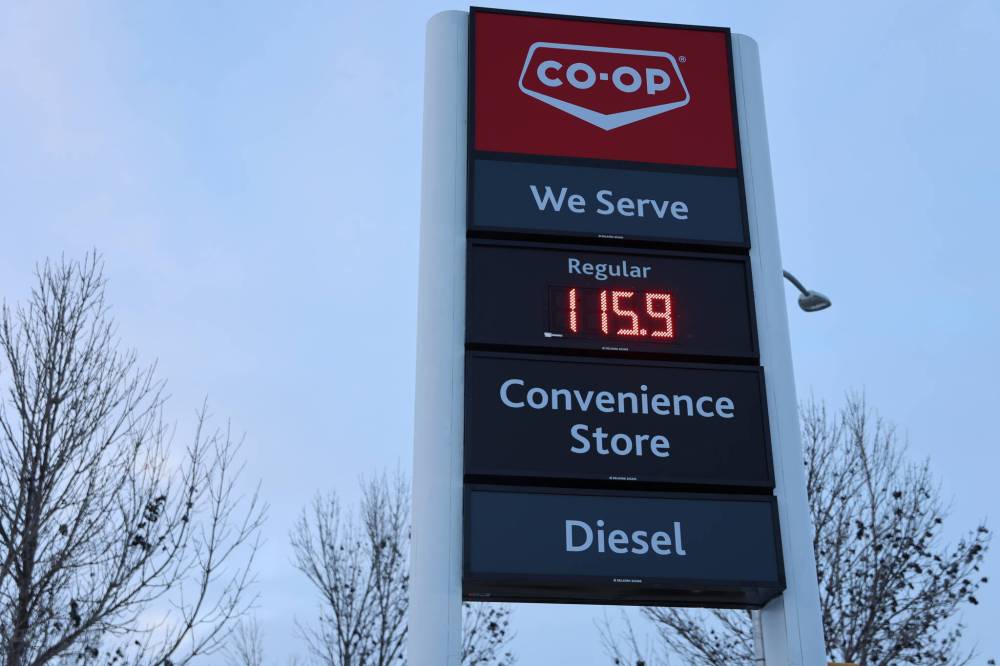Get money back now, pay later
Advertisement
Read this article for free:
or
Already have an account? Log in here »
To continue reading, please subscribe:
Monthly Digital Subscription
$0 for the first 4 weeks*
- Enjoy unlimited reading on winnipegfreepress.com
- Read the E-Edition, our digital replica newspaper
- Access News Break, our award-winning app
- Play interactive puzzles
*No charge for 4 weeks then price increases to the regular rate of $19.00 plus GST every four weeks. Offer available to new and qualified returning subscribers only. Cancel any time.
Monthly Digital Subscription
$4.75/week*
- Enjoy unlimited reading on winnipegfreepress.com
- Read the E-Edition, our digital replica newspaper
- Access News Break, our award-winning app
- Play interactive puzzles
*Billed as $19 plus GST every four weeks. Cancel any time.
To continue reading, please subscribe:
Add Free Press access to your Brandon Sun subscription for only an additional
$1 for the first 4 weeks*
*Your next subscription payment will increase by $1.00 and you will be charged $16.99 plus GST for four weeks. After four weeks, your payment will increase to $23.99 plus GST every four weeks.
Read unlimited articles for free today:
or
Already have an account? Log in here »
Hey there, time traveller!
This article was published 06/01/2024 (690 days ago), so information in it may no longer be current.
Nothing in this life is free, especially these days. The same is true of a tax cut.
When Manitobans woke up on New Year’s Day, the price at the pump was supposed to be a little lower — 14 cents per litre lower, to be specific, owing to a six-month gas tax holiday imposed by Wab Kinew’s NDP government.
As Manitobans continue to grapple with the high cost of living, it’s no doubt a welcome reprieve for many who are tired of feeling the pinch when they fill up. However, the savings come at great cost to the public coffers.

Brandon Sun files
In keeping with the province’s gas-tax freeze, the Heritage Co-op gas station on Rosser Avenue in Brandon reduced pump prices by 14 cents a litre.
The average family in the province will save around $250 over the course of the tax holiday. That’s certainly of some help for individual households. But looked at collectively — there were 359,585 census families in private households recorded in 2021 — it means more than $89 million won’t be going to the provincial government.
But that’s not all. Savings are coming from the federal government as well, as Ottawa prepares to dole out Climate Action Incentive rebates to Canadians. The federal carbon tax rebate for 2023-24 is about $264 for a family of four in Manitoba. Then there are the payouts to smaller families and individuals, not just in Manitoba but in Alberta, Ontario, Saskatchewan, New Brunswick, Nova Scotia, and Prince Edward Island.
All in all, a fortune is being handed out piecemeal across the country, all of it carbon tax money returned to Canadians. The question is: what’s the point?
Carbon taxes and fuel taxes serve multiple purposes. They discourage the overconsumption of fossil fuels (hard though it may be to avoid them at present). And, they fill the public coffers so that, to some extent at least, investments may be made in alternative energy sources or other climate change mitigation measures.
That this money is being turned away by both provincial and federal governments makes for good retail politics, but lousy long-term planning. Manitoba finds itself facing numerous challenges which could be better worked on with an extra $89 million in the bank (transit systems for one, health care for another). Justin Trudeau’s government, for its part, would be better capable of selling Canadians on its plan to phase out fossil fuel-chugging vehicles by 2035 if it could prove it had the resources and willpower to establish alternative infrastructure. Many letter writers to this paper have pointed out that electric vehicles are only so useful as the infrastructure built to accommodate them. Could that carbon tax money, perhaps, be used to build it?
Cuts and rebates in the here and now will help cover a few bills, buy a few groceries and, yes, fill a few tanks. But those savings and rebates, at the individual household level, won’t be enough to put solar panels on anyone’s roof, or install geothermal heating, or buy zero-emission vehicles or install their needed charging stations. Nobody is taking the savings from the gas tax holiday and putting up a wind turbine in their St. James backyard. That being the case, it’s arguable these tax cuts and rebates do nothing more effectively than render the taxes themselves useless.
If government wishes to tax gasoline and carbon emission, so be it. It’s not an inherently pointless policy. But if government is going to collect the money, it should focus on using it to build the world we so urgently need to build.
Just about everyone could do with a few more dollars as a new year begins. But what we all need much more is a sustainable, livable world.


